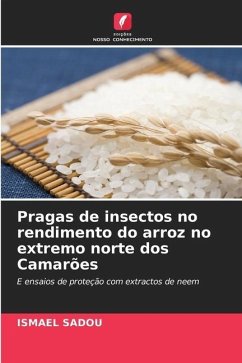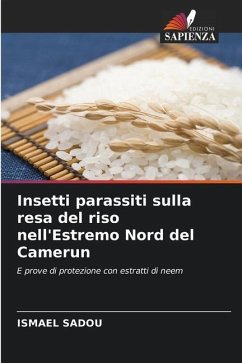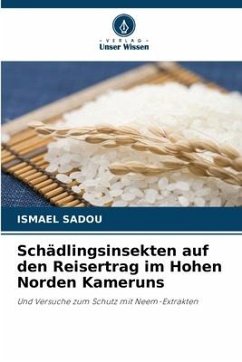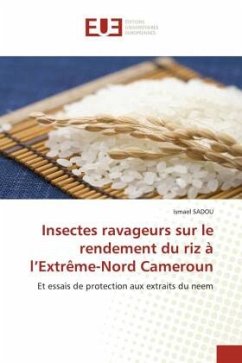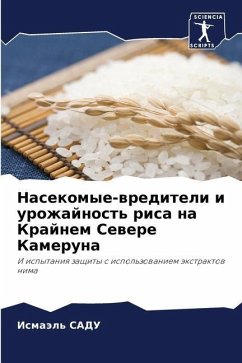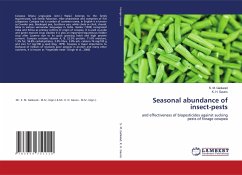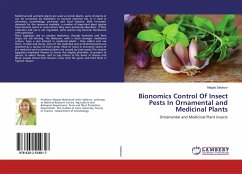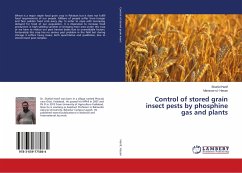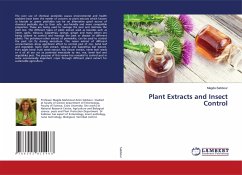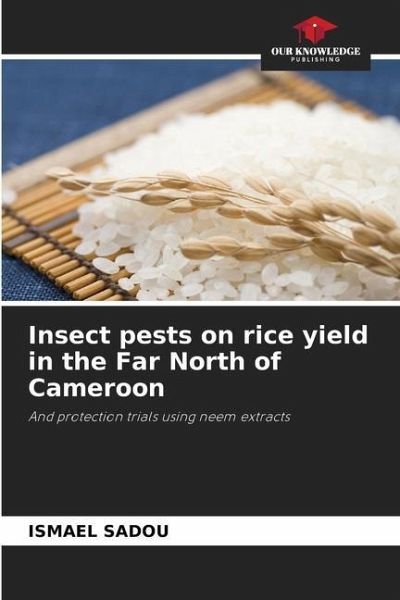
Insect pests on rice yield in the Far North of Cameroon
And protection trials using neem extracts
Versandkostenfrei!
Versandfertig in 6-10 Tagen
60,99 €
inkl. MwSt.

PAYBACK Punkte
30 °P sammeln!
Insect pests of rice are a very serious threat to rice production (irrigated and rainfed) in the Far North region of Cameroon, causing yield losses, but have not received the attention they deserve as a major constraint to rice production in Africa. The present study was conducted with a view to improving rice production through proper management of rice insect pests, using appropriate control methods in the Far North of Cameroon in the irrigated rice ecosystem of Maga and the rainfed rice ecosystem of Maroua. On experimental plots (randomized blocks) of NERICA 3 rice and IR 46 rice, we compar...
Insect pests of rice are a very serious threat to rice production (irrigated and rainfed) in the Far North region of Cameroon, causing yield losses, but have not received the attention they deserve as a major constraint to rice production in Africa. The present study was conducted with a view to improving rice production through proper management of rice insect pests, using appropriate control methods in the Far North of Cameroon in the irrigated rice ecosystem of Maga and the rainfed rice ecosystem of Maroua. On experimental plots (randomized blocks) of NERICA 3 rice and IR 46 rice, we compared three treatments: a control (no pesticide application), a registered chemical insecticide "lynx" whose active ingredients are Lambda-cyhalotrin 15g/l and Acetamiprid 20g/l, and a biopesticide "aqueous neem seed extract". Spraying the aqueous extract of neem seeds on the IR46 rice variety and the NERICA 3 variety enabled us to better control the evolution of the population of insect pests such as Conocephalus maculatus.



